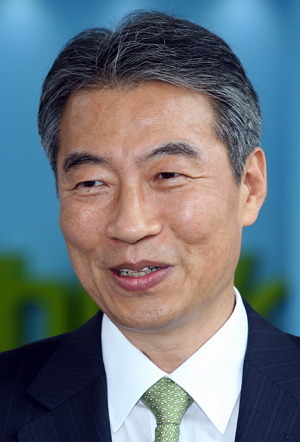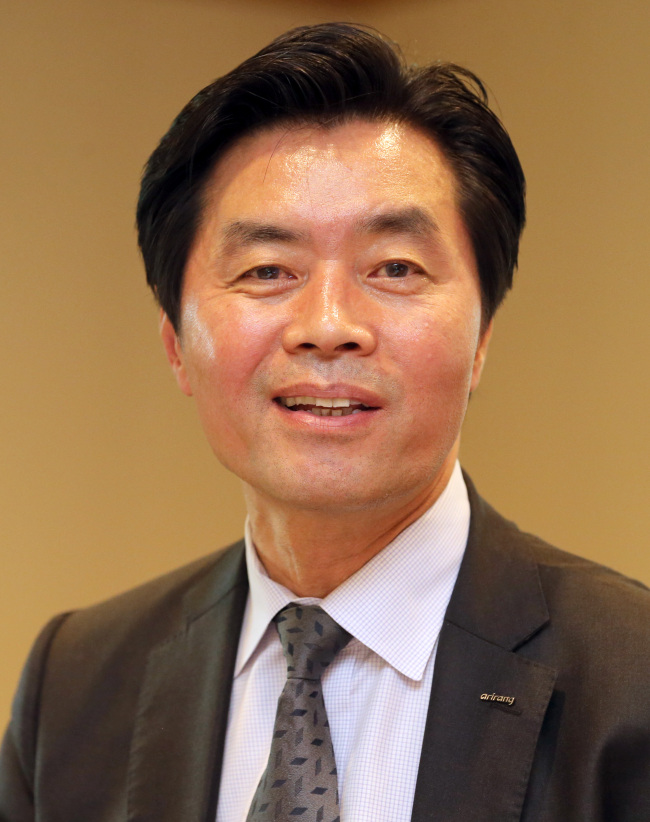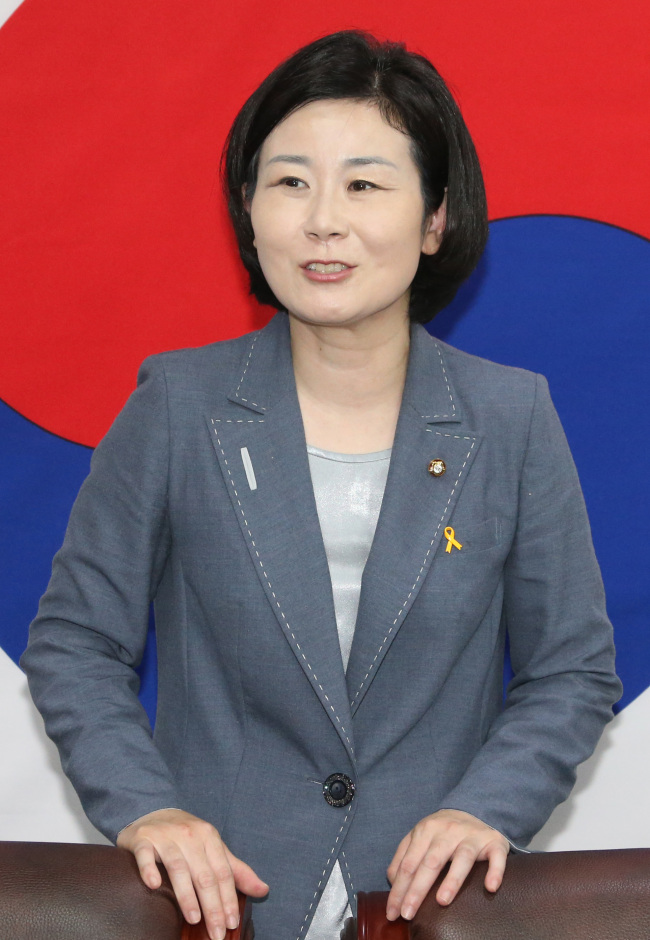Education pick seen conservative
President Park Geun-hye named a conservative education expert as the new education minister on Friday, a move aimed at striking a balance in the education sector after progressives swept 13 out of 17 city and provincial education chief posts in the June 4 local elections.
Education minister-nominee Kim Myung-soo is considered a veteran of education affairs with a very conservative political outlook, having openly criticized the Korean Teachers and Education Workers’ Union, a group of progressive teachers.
President Park Geun-hye named a conservative education expert as the new education minister on Friday, a move aimed at striking a balance in the education sector after progressives swept 13 out of 17 city and provincial education chief posts in the June 4 local elections.
Education minister-nominee Kim Myung-soo is considered a veteran of education affairs with a very conservative political outlook, having openly criticized the Korean Teachers and Education Workers’ Union, a group of progressive teachers.

The 66-year-old, who currently serves as a professor at Korea National University of Education, is expected to face tough challenges as the 13 liberal superintendents, including the newly elected Seoul education chief Cho Hee-yeon, share very different values and plans for the nation’s education system. A total of eight regional education offices will be headed by KTU-friendly chiefs starting July.
Kim, who started his career as a middle school teacher in 1975 after studying education at Seoul National University, has been openly emphasizing the importance of security education over free-lunch programs for school children, while arguing that KTU should not make “political” remarks regarding the nation’s education system.
He also joined a number of conservative scholars, including Seoul National University professor Park Hyo-jong and Chung-Ang University professor Je Sung-ho, in criticizing a group of local scholars who expressed concerns when former President Roh Moo-hyun committed suicide amid a probe into a corruption scandal involving his family in 2009.
Kim and the conservative scholars argued that the Lee Myung-bak administration was not responsible for Roh’s death, while the other group of claimed that it was Lee’s “politically motivated” investigation that caused Roh’s tragic end.
Kim also spoke out against the students’ rights ordinance, which many liberal-minded politicians stress the importance of, saying that it has been “organized with a particular political and ideological purpose.”
By Claire Lee (dyc@heraldcorp.com)
Chong Jong-sup, Public administration
Chong, 56, is a renowned constitutional scholar at Seoul National University who has long advocated sweeping state, judicial and social reform.
He will lead a new ministry envisioned to handle home affairs as the smaller successor to the existing Ministry of Security and Public Administration that will be dismantled as part of President Park Geun-hye’s government reconfiguration plans unveiled in the wake of the Sewol sinking in April.

Chong’s academic work focused on the presidential system, basic rights and constitutional reform. He is also known as an avid supporter of the parliamentary cabinet system.
Born in Gyeongju, North Gyeongsang Province, he passed the national bar exam in 1982 and served as a research officer at the Constitutional Court. He taught at Konkuk University before moving to SNU in 1999.
The professor currently chairs the Korean Constitutional Law Association.
Chong’s relationship with Park dates back to the April 2012 general elections, during which he was a vice chairman of the nomination committee for the Grand National Party, the forerunner of the ruling Saenuri Party.
The president was serving as the GNP’s de facto leader, heading the emergency committee.
Chong also boasts academic ties with some of Park’s close confidants such as Ambassador to China Kwon Young-se and Rep. Yoo Seung-min of the Saenuri Party.
But his lack of experience in public administration is likely to be a major stumbling block to parliamentary approval. He is said to have a “critical view” of current politics, according to a source that is close to the scholar.
(hj257@heraldcorp.com)
Chung Sung-keun, Culture, sports & tourism
Ministerial nominee for culture, sports and tourism Chung, 59, is a veteran television journalist with nearly 30 years of experience in major broadcasting companies such as KBS and SBS.
Born in 1955, Chung graduated from the department of advertising and public relations of Chung-Ang University and began his media career as a reporter for KBS. He later moved to SBS, where he held several key posts.
He made himself familiar to Korean audiences as the anchor of SBS’ daily nighttime news program “Nightline,” drawing attention for his closing remarks that were often critical of the government.

In 2012, he ran for a parliamentary seat in Paju, Gyeonggi Province, as a candidate for the Saenuri Party but lost to Yoon Hu-duk, a candidate from the main opposition Democratic Party, the predecessor of the New Politics Alliance for Democracy.
The same year, Chung worked as a public relations official for President Park Geun-hye during her election campaign and contributed to her victory. Having been a key aide to Park, Chung has often been considered for positions such as a presidential spokesman and chief presidential press secretary.
He has been working as president and CEO of the nation’s largest English-language television channel, the government-affiliated Arirang TV, since March 2014.
(jiyoung.sohn@heraldcorp.com)
Lee Ki-kweon, Employment & labor
Lee, 57, served at the labor ministry for more than 30 years before becoming the president of Korea University of Technology & Education last year.
Lee last served as vice-minister of labor before going into academia.
Multiple sources within the ministry welcomed Lee’s nominatin. Senior ministry officials who claimed to have worked with the bureaucrat said Lee was “a man of virtue” who “always took the blame for others when things got tough.”

Lee is remembered for his legislation efforts in 2009 to amend labor laws in order to increase benefits for temporary workers.
Lee is a graduate of Chung-Ang University in Seoul, and a South Jeolla Province native. The has served stints as a government auditor, employment policy maker and department of labor standards head. The veteran official also served as a presidential secretary during the Lee Myung-bak administration.
There were worries that the lifelong bureaucrat could struggle in his new position because of his political inexperience. Heightened public demand for government reforms in the aftermath of the Sewol accident could also work against Lee, sources said.
(hj257@heraldcorp.com)
Kim Hee-jung, Gender equality & family
Kim, 43, nominated as the new minister of gender equality and family on Friday, is a two-term Saenuri lawmaker who is recognized for her specialty in the IT industry as well as her successful political career.
In 2004, at age 33, she became the youngest elected female lawmaker in Korean history, by winning the parliamentary election in her hometown Busan.

It was the first time in more than a half century that a female candidate won a parliamentary election in the conservative city.
Although her major was political science while studying at Yonsei University in Seoul, Kim is known for her work related to the nation’s local IT industry.
The lawmaker served as a member of the Science, ICT, Future Planning, Broadcasting, and Communication Committee of the National Assembly in 2007, and as the first head of the Korea Internet & Security Agency from 2009 to 2010.
Kim worked as a spokeswoman for Cheong Wa Dae under the Lee Myung-bak administration in 2010. She also served as a member of the Gender Equality and Family Committee of the National Assembly, after being reelected as a lawmaker in Busan in 2012.
(dyc@heraldcorp.com)
-
Articles by Korea Herald










![[Hello India] Hyundai Motor vows to boost 'clean mobility' in India](http://res.heraldm.com/phpwas/restmb_idxmake.php?idx=644&simg=/content/image/2024/04/25/20240425050672_0.jpg&u=)








